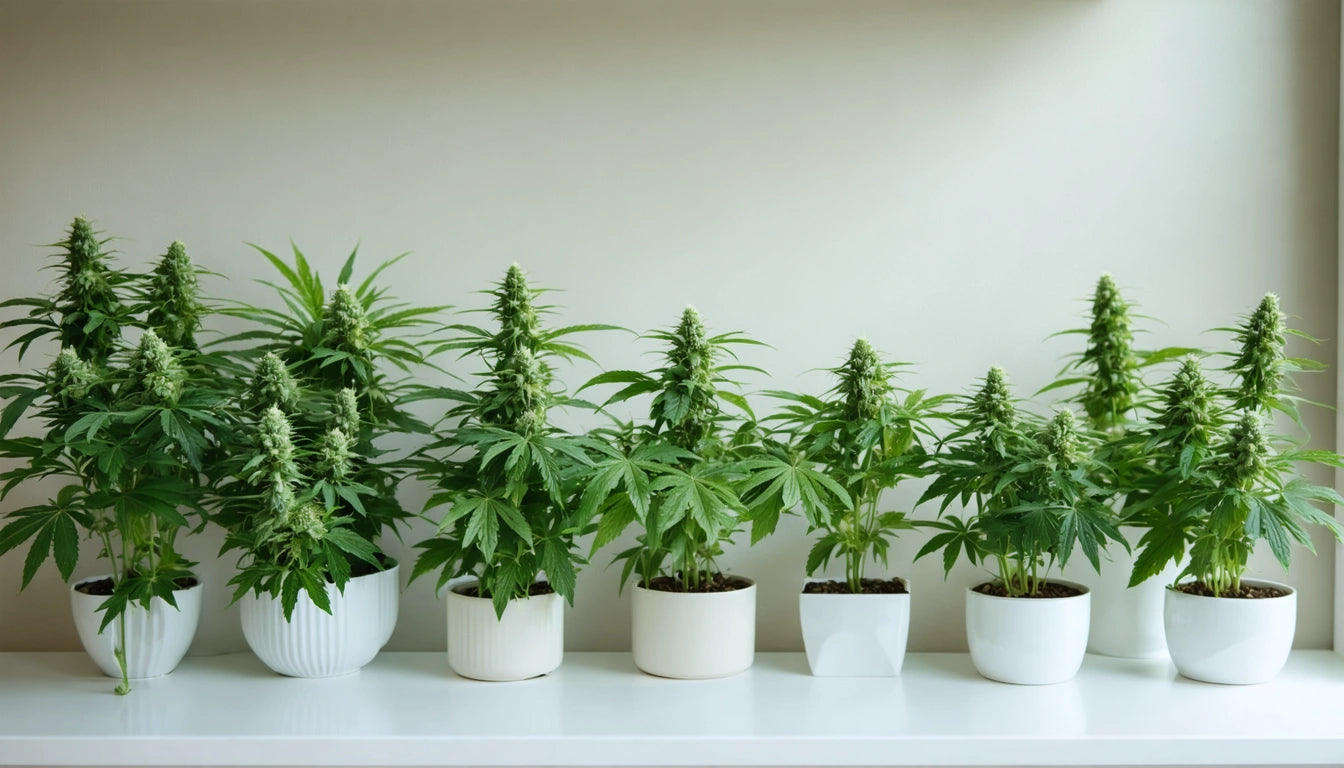Effective Strategies to Quit Smoking Weed: Tips and Alternatives
Deciding how to stop smoking weed is a personal journey that requires commitment, support, and effective strategies. Whether you're looking to quit completely or reduce your consumption, this guide offers practical approaches to help you achieve your goals.
Understanding Cannabis Dependency
Cannabis dependency develops when regular use leads to psychological or physical reliance. While not everyone who uses cannabis becomes dependent, regular users may experience difficulty when trying to stop smoking weed.
Signs of dependency include:
- Using more cannabis than intended
- Failed attempts to cut down or control use
- Spending significant time obtaining, using, or recovering from cannabis
- Experiencing cravings or urges to use
- Continued use despite negative consequences
Understanding your relationship with cannabis is the first step toward making a change. Many users find success in quitting when they clearly identify their motivations.
Immediate Strategies to Stop Smoking
Remove Access and Triggers
To stop smoking weed immediately, start by removing all cannabis products and paraphernalia from your environment. This includes:
- Disposing of any remaining cannabis
- Removing pipes, papers, grinders, and vape pens
- Deleting contact information for suppliers
- Avoiding social situations where cannabis is present
Creating physical distance between yourself and cannabis makes it easier to resist temptation during the early stages of quitting.
Set Clear Goals and Boundaries
Decide whether you want to quit completely or gradually reduce your consumption. Some find success with tapering, while others prefer a clean break. Effective strategies to quit often include setting specific, measurable goals.
Managing Withdrawal Symptoms
When learning how to stop smoking weed daily, be prepared for potential withdrawal symptoms, which may include:
- Irritability and mood changes
- Sleep disturbances
- Decreased appetite
- Restlessness
- Intense dreams or nightmares
- Cravings
These symptoms typically peak within the first week and gradually subside over 2-3 weeks. To manage them effectively:
Stay Hydrated and Maintain Nutrition
Proper hydration helps flush cannabinoids from your system. Eating regular, nutritious meals helps stabilize mood and energy levels. Some users find that humidity control products that preserve freshness can be repurposed for storing healthy snacks that help manage cravings during the quitting process.
Exercise Regularly
Physical activity releases endorphins, which can help combat the mood changes associated with cannabis withdrawal. Even light exercise like walking can be beneficial.
Alternatives to Smoking Weed
Finding things to do instead of smoking weed is crucial for long-term success. Consider these alternatives:
Healthy Physical Activities
- Yoga or meditation
- Hiking or outdoor activities
- Team sports
- Swimming or cycling
Creative Pursuits
- Art or music
- Writing or journaling
- Cooking or baking
- Photography
Social Connections
- Joining clubs or groups with shared interests
- Volunteering
- Reconnecting with non-cannabis-using friends
- Attending support groups
Many former users discover that creative alternatives not only help them avoid cannabis but also enrich their lives in unexpected ways.
Long-Term Success Strategies
Build a Support System
Share your decision to quit with trusted friends and family who can provide encouragement and accountability. Consider joining support groups specifically for those looking to stop smoking pot.
Develop Coping Mechanisms
Identify situations that trigger cravings and develop strategies to manage them:
- Practice stress-reduction techniques like deep breathing
- Use distraction methods when cravings hit
- Have ready responses for social situations where you might be offered cannabis
- Create rewards for milestones in your quitting journey
For those wondering how to stop smoking weed pens specifically, consider gradually reducing nicotine content if applicable, and find substitute hand-to-mouth activities like chewing gum or using fidget toys.
Consider Professional Help
If you're struggling with how to stop smoking weed everyday, professional support can make a significant difference:
- Therapy, particularly Cognitive Behavioral Therapy (CBT)
- Addiction counseling
- Support groups like Marijuana Anonymous
- Medical consultation for severe withdrawal symptoms
Professional guidance is especially helpful for those who have used cannabis to self-medicate anxiety, depression, or other mental health conditions.
Moving Forward Without Cannabis
As you progress in your journey to stop smoking weed, focus on the positive changes in your life:
- Improved mental clarity and memory
- Better lung health
- Financial savings
- More productive use of time
- Healthier relationships
Many people find that managing and overcoming marijuana cravings becomes easier with time. The key is to replace cannabis with activities and relationships that provide genuine fulfillment.
Remember that setbacks are common in any behavior change. If you experience a relapse, treat it as a learning opportunity rather than a failure. Identify what triggered the relapse and adjust your strategy accordingly.
With persistence, support, and the right strategies, you can successfully navigate how to stop smoking weed and create a fulfilling life without cannabis dependence.











Leave a comment
All comments are moderated before being published.
This site is protected by hCaptcha and the hCaptcha Privacy Policy and Terms of Service apply.